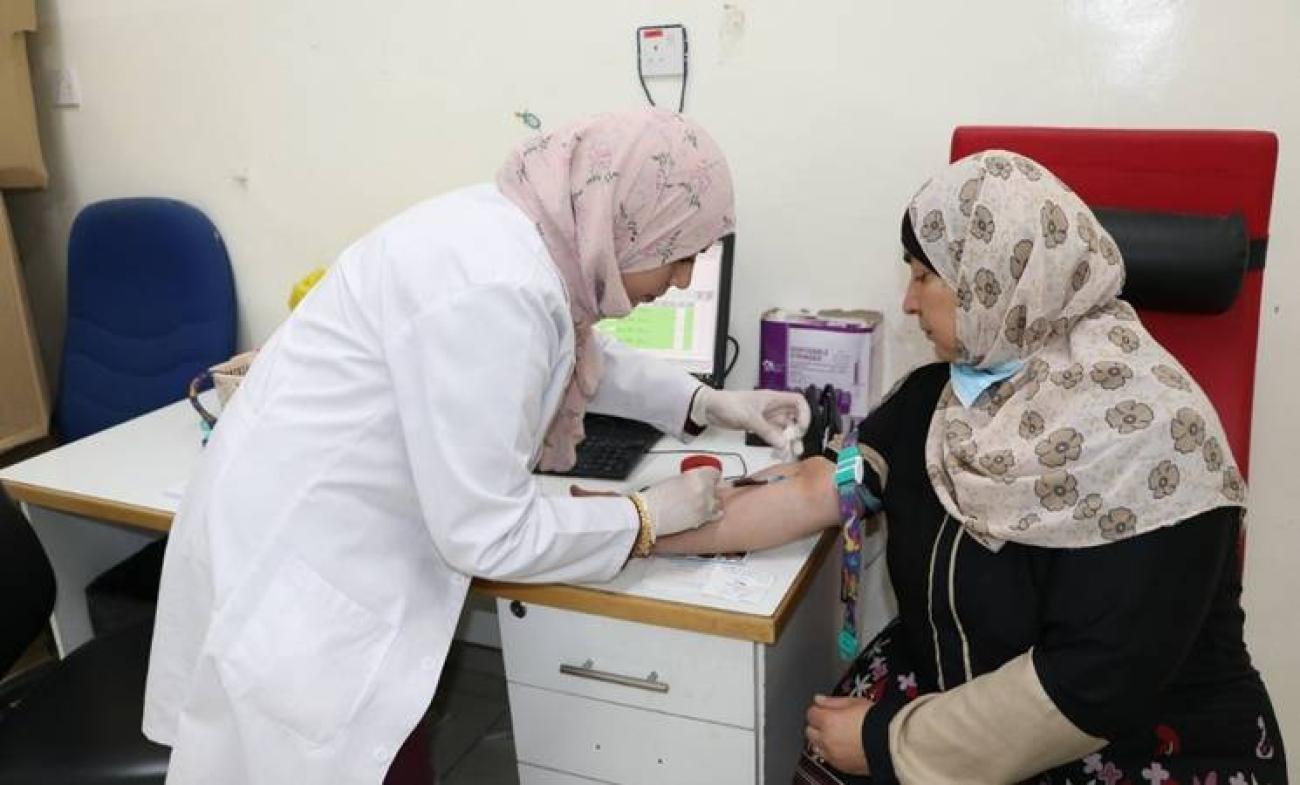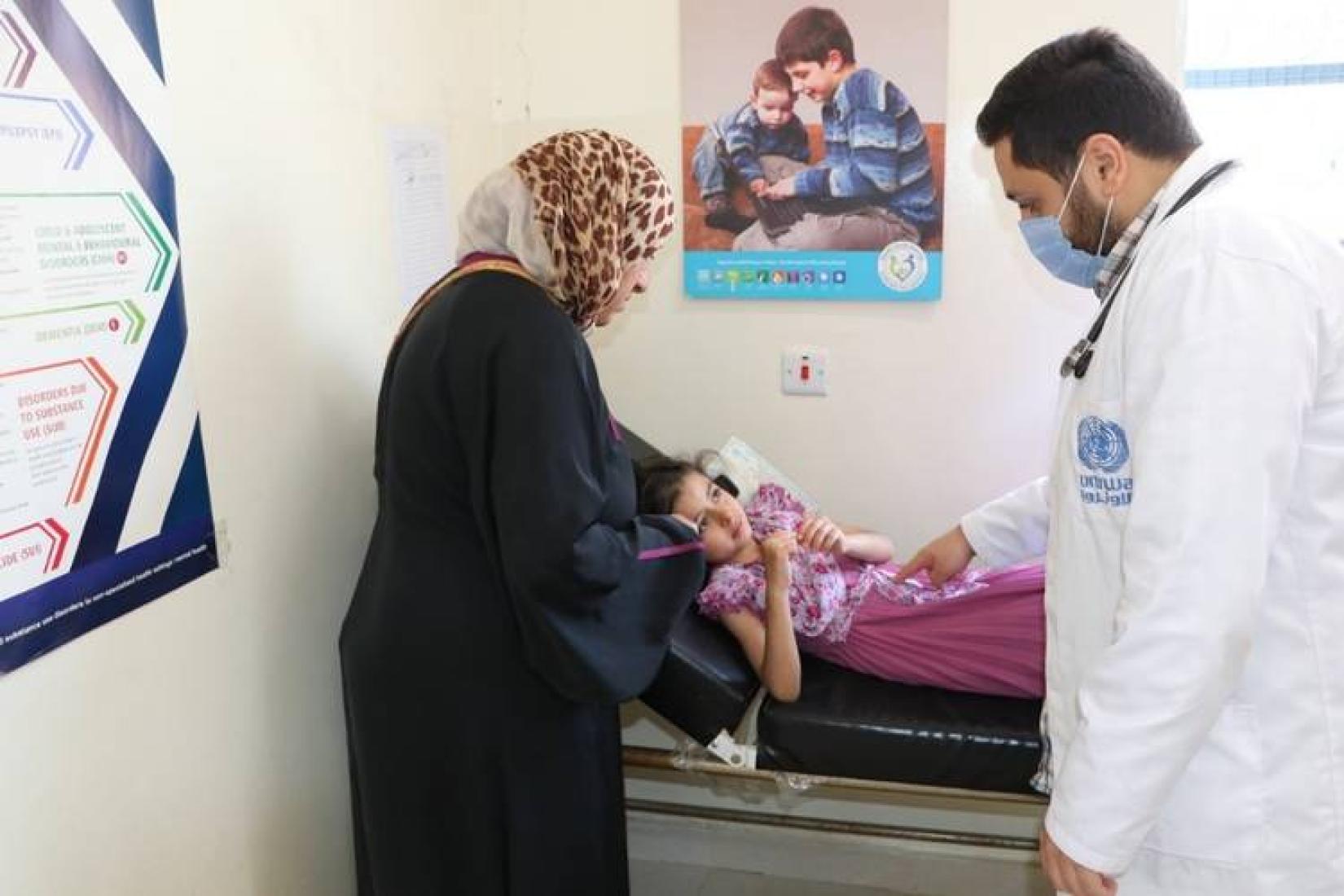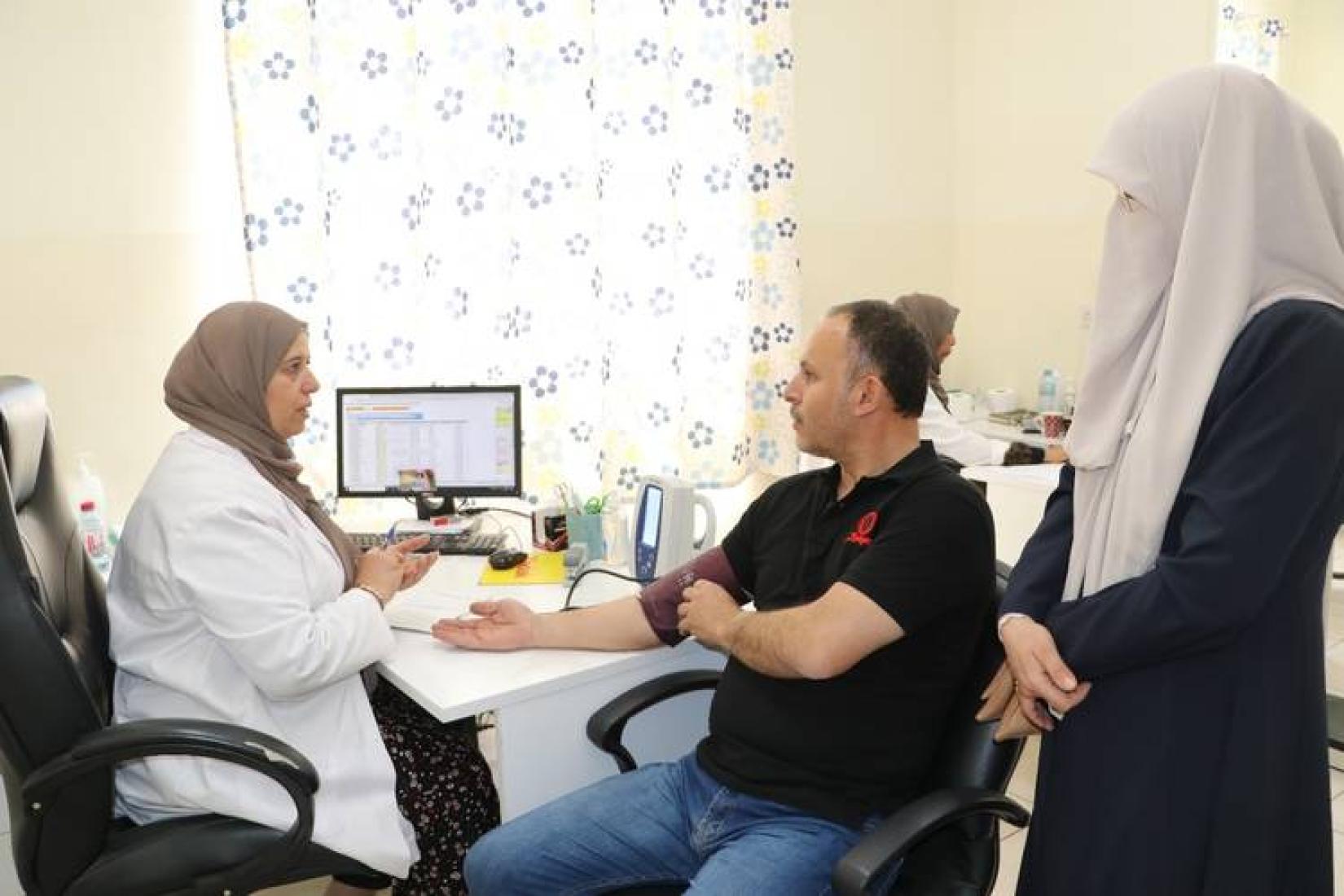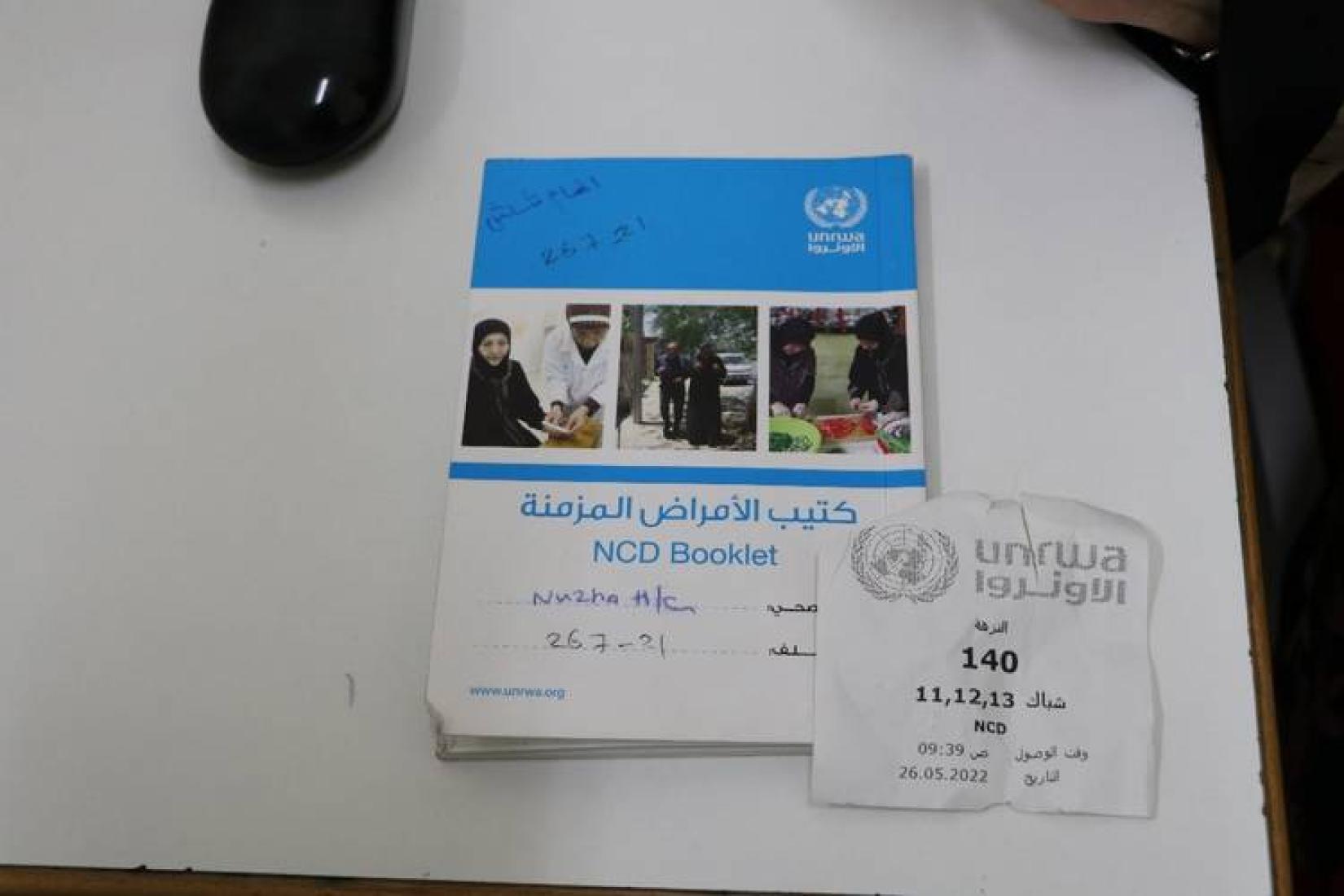A decades-long mission to save Palestine refugee lives

For more than 70 years, UNRWA has provided quality health services to address the needs of Palestine refugeesز
“The timely follow-up [here] is outstanding, I undergo lab tests twice a year, which helps me move forward with my prescribed treatment plan as needed,” said Elham Al Shalsh, 43. Elham is a patient at the UNRWA Nuzha Health Centre in Jordan. “I have my non-communicable diseases booklet with me at all times. It helps me to be organized and cautious about my health. I am thankful to UNRWA and grateful to be in such good hands” she added. Thanks to the financial contributions made by Kuwait Fund to UNRWA in 2022, the agency was able to deliver education, health services, and social protection to millions of Palestine refugees.

“Yesterday, my daughter had stomach pain. I was really worried about her. The first thing I thought about was to take her to the UNRWA Nuzha Health Centre. I trust the doctors and nurses here. They take care of my young daughter exactly like I do. I have never been disappointed,” says Rasha Al Tantawi, a 38-year-old mother of four children. Thanks to donors like Kuwait Fund for contributing to the UNRWA core Programme Budget, UNRWA was able to maintain its essential services including health care, education, and relief and social services.

Amjad Yaser Mahmoud, a 45-year-old diabetes patient at the UNRWA Nuzha Health Centre, comes with his wife, Rania Al Zwatneh, 42, for a checkup. “The health centre has offered me comprehensive health care services, including regular testing, consultations, and health advice on how to live a healthy life,” says Amjad .
The Agency’s Family Health Team is a person-centred approach devoted to improving the quality of primary health care to Palestine refugees. For more than 70 years, UNRWA has provided quality health services to address the needs of Palestine refugees through partnerships with host countries and donors like the Kuwait Fund for Arab Economic Development.

“The first time I witnessed someone saving another person’s life, I was at an UNRWA health centre,” said Abdel Qader Hamdallah. “I was a young child with my mother when a diabetic patient fainted in front of us. A nurse immediately rushed to help him
Once a month, 53-year-old diabetic patient Abdel Qader Hamdallah visits the UNRWA Nuzha Health Centre in Jordan to receive treatment. Diagnosed in 2011 he said: “Every time I visit an UNRWA health centre, I feel like I’m visiting family. It’s not just about the health care. It’s how human and personable the doctors and nurses are here. I am grateful to the staff at the UNRWA Nuzha Health Centre for following up on my condition and providing me with health awareness and information on how to live with diabetes. This includes healthy eating habits, the importance of physical exercise and how to comply with my visits to the clinic,” he adds. With generous support from donors like The Kuwait Fund for Arab Economic Development, UNRWA is able to provide health services to millions of Palestine refugees in Jordan, Lebanon, Syria, the West Bank and the Gaza Strip.
Non-communicable diseases, including diabetes, are an increasing health risk among Palestine refugees. With thanks to generous support from donors like the State of Kuwait and the Kuwait Fund for Arab Economic Development, the UNRWA health programme is able to provide Palestine refugees with advanced screening, specialized treatment, and medicines.
The State of Kuwait has long been a critical partner of UNRWA and Palestine refugees. Over the past two decades, The State of Kuwait including The Kuwait Fund for Arab Economic Development to the Agency have contributed nearly US$ 245 million, including US$ 65 million for UNRWA emergency operations in Syria. This generous support from the Government of Kuwait, the Kuwait Fund for Arab Economic Development and other Kuwait-based organizations including The International Islamic Charity Organization, and the Kuwait Red Crescent enabled UNRWA to continue providing basic services for millions for Palestine refugees across the Middle East.


